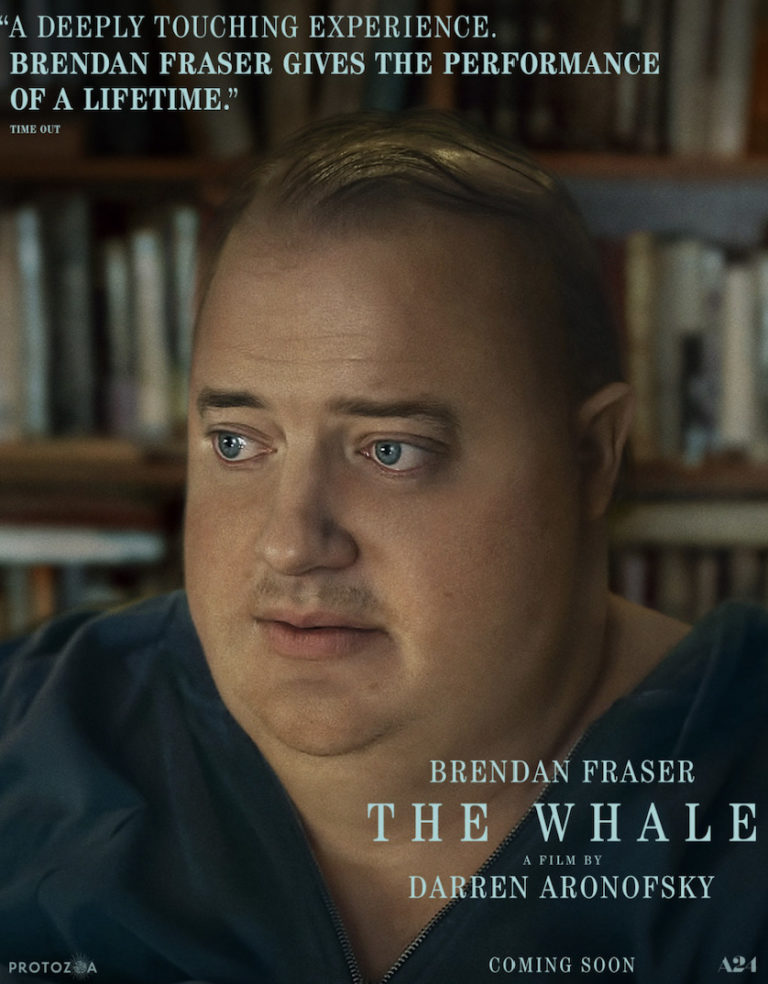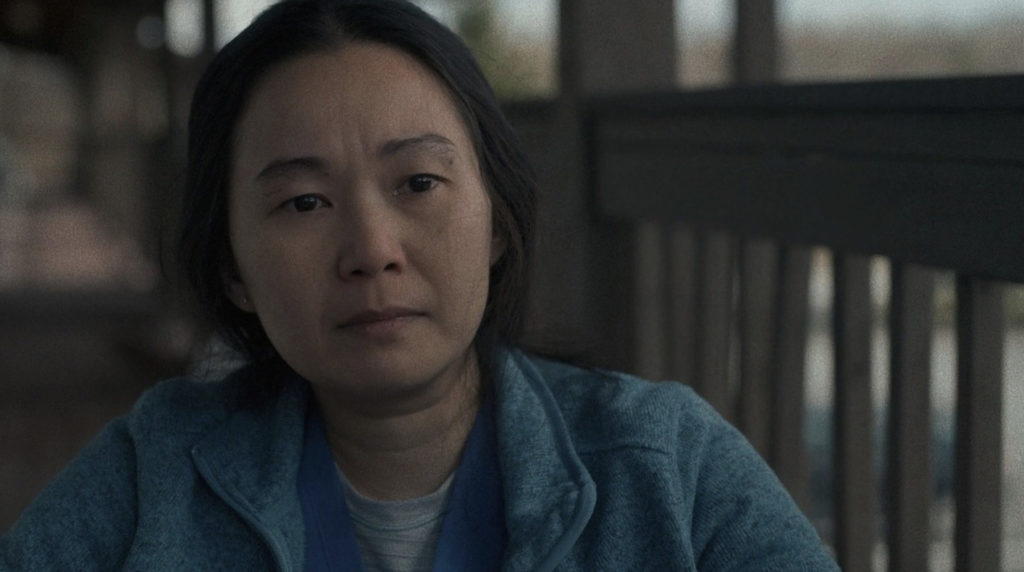
Director Darren Aronofsky’s latest outing, “The Whale,” premiered in competition at the 2022 Venice Film Festival. The film challenged audiences — leading them through an emotional journey in a most unexpected way — to recognize that someone outside of our usual mode of thinking exists.
The story tells of Charlie (Brendan Fraser), a morbidly obese gay literature professor who teaches through online courses, so he never has to leave his dingy, cluttered house. Due to a grief-stricken depression which emerged since the death of his lover several years ago, he’s trapped himself through a self-punishing compulsion to eat himself to death. He’s deep in an ocean of loneliness.
We get a glimpse of his struggle, a daily routine of chest pain; his health is quickly deteriorating, and he hasn’t much time left to live. But thanks to a chance encounter with a zealous missionary from the end-of-times religious group New Life, Thomas (Ty Simpkins), this daily routine filled with regrets is about to change. Trying to put a stop to his never-ending cycle, he decides to use the little time he has left to reach out to his estranged daughter Ellie (Sadie Sink) and tries to mend some bridges before it’s too late.
His only lifeline to sanity is Liz (Hong Chau), a friend and the sister of his deceased lover, who makes routine visits to care for Charlie while pleading with him to go to the hospital before his heart stops beating. She occasionally chastises his behavior, and, despite his acceptance of his fate, Liz proves to be someone who wants the best for those she cares about.

The sequences between Ellie and Charlie are some of the most difficult moments in the film, with much of the dialogue they throw at each other full of heartache and pain. They dive into deep wounds from the past that will never be fully healed.
It’s really impressive to view prosthetic make-up used on this scale besides what’s seen in a horror film. As realistic as it gets, the audience comes to accept it within minutes. Aronofsky has been known to cast “outcasts” such as Mickey Rourke in “The Wrestler” and Nick Nolte in “Noah,” so Fraser as the lead here is as expressive as it gets — enough to melt anyone’s heart.
Even though the film takes place in the one location of Charlie’s house, it never feels claustrophobic. The camera constantly moves around. Aronofsky has sometimes been accused of being self-indulgence, even of being too bold and heavy-handed in his filmmaking. He drives it home in this film, which took a similar approach to what he did with “The Wrestler,” which showed an unexpected emotional sensitivity to characters as they revealed their troubles. In empathizing with Charlie rather than pitying his existence, it’s remarkable to see Fraser, who has been out of the spotlight for several years, make a comeback in such an engaging way.
“The Whale” offers an intimate look at a man’s struggle with inner demons. The film doesn’t make for easy viewing as Charlie falls through gluttony — one of those seven deadly sins in the Bible.
This is a story about pain, loss, and a relentless effort at redemption. It also offers spiritual guidance for accepting people as they are, and to care about a person at their end. Charlie is left at his house suggesting a ship out at sea, such as the Pequod from Herman Melville’s “Moby Dick,” which was used as reference throughout the film.
Check out more of Nobuhiro’s articles.
Here’s the trailer of the film.

